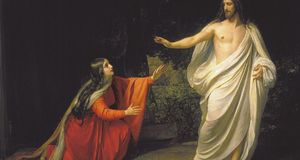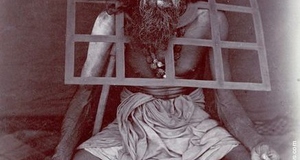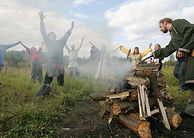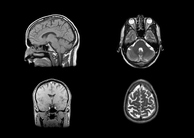The Purposive Power of Natural Theology: On Moser and the Christian Apologetics
By
2017, Vol. 9 No. 04 | pg. 1/1
IN THIS ARTICLE
KEYWORDS
In recent years there has been quite a bit of talk in philosophy of religion regarding how relevant and how purposive natural theology is, especially in comparison with experiential evidence. One major proponent of this recent skepticism in relation to natural theology is Paul K. Moser. Moser believes that natural theology may in fact be a satisfactory means to arriving at theism, but not to personal theism. This is problematic for Moser, because he believes that the goal of Christian apologetics ought to be to convince people not only of the existence of a divine being, but also that the divine being is morally perfect and worthy of worship. 1 A primary opponent of this theory is Telda G. Woldeyohannes, who ascribes to the traditional belief that natural theology is quite purposive and useful for Christian apologetics. Both Moser and Woldeyohannes’ views will be assessed and juxtaposed here in order to determine what each of these approaches roles are in the Christian apologetics. Moser’s argument essentially rests on the postulations that arguments from natural theology do not achieve enough for Christian apologetics and that experiential arguments are more purposive than those of natural theology, therefore experiential arguments are also more persuasive. Woldeyohannes’ argument however, will show that arguments from natural theology are not only purposive enough to be convincing, but it will also be made evident that arguments from natural theology can in fact convince a person of personal theism, which is exactly what Moser is after in his enterprise. Finally, in this paper, once both arguments have been explained and examined thoroughly, they will be juxtaposed and an adjudication will be made as to what role each of these positions hold in Christian apologetics. Moser's ArgumentAs has been briefly covered, Moser disavows the usefulness of arguments from natural theology because he believes they are not capable of bringing people to the most important truth, and that is, there is a morally perfect God that is worthy of worship.2 Moser clarifies this foundation to his theory when he states, “my case against natural theology relies on an understanding of the title ‘God’ in terms of a personal agent worthy of worship.” 3 In other words, Moser will not be satisfied with a supposed argument for theism unless it proves this definition of God which he has provided. This is not the only criteria that Moser must be measured by though. Woldeyohannes makes an astute observation when he explains that “for Moser, the relevant evidence for God’s reality comes in a direct experience of God and hence it does not require propositional evidence in the form of arguments.”4 Given this information, there are at least two points of Moser’s argument that must be addressed, whether experiential evidence is the only way to arrive at his definition of God, and if Moser’s argument is the most purposive of arguments in favor of theism. However, before these may be authoritatively spoken of, Moser’s argument must be more thoroughly understood.One important point to note is that rather than simply critiquing the current form of Christian apologetics and natural theology, Moser also offers an alternative method of apologetics. Rather than using only natural knowledge in order to convince others of theism, Moser believes that theists ought to use experiential knowledge as the basis for their arguments. Given this belief, one must ask what constitutes ‘experiential knowledge’. What Moser means by this term is essentially that arguments for theism ought to be based in empirical experience rather than a strictly cognitive exercise. Moser gives two examples of this. First, when one has an experience with a divine being, that experience constitutes and may be classified as evidence for the existence of a God. Secondly, when a person’s life is changed from such an experience with God and other people recognize that the experience caused a major change in the person (in their character, morality, or otherwise as a direct result of their experience with God), that observation is evidence to them of God’s existence.5 In short, that which Moser categorizes as theistic proofs is either a direct experience with God, or an experience between persons wherein one observes a palpable difference in the other due to their experience with the divine.6 It seems as if Moser’s theory is spawned, not out of brilliant revelation, but out of a strong dislike of natural theology and a pre-commitment to empiricism. With this set of variables, the only possible outcomes seem to be agnosticism or the creation of a new approach to Christian apologetics. This new approach is bold and a complete transition from rationalism to empiricism in Christian apologetics. After all, the three arguments that Moser says he is working against are the ontological, teleological, and cosmological arguments, which are essentially posed purely from reason, or what Moser calls ‘natural knowledge’.7 In regards to experiential evidence and arguments from religious experience, many Christian philosophers avoid using this tactic and line of arguing altogether. Although some do choose to use these types of arguments; when they are used, they are commonly coupled with statements clarifying that although experiential arguments are weak, they still have some legitimacy and power given the immense amount of them. So it would seem that most philosophers practicing Christian apologetics recognize the weakness of these arguments, but Moser is a stark contrast to them in that he believes that arguments using experiential knowledge should be the only ones used whatsoever in Christian apologetics. Now, a look at other philosophers’ thoughts on this subject should be helpful in assessing whether Moser has constructed a modern day Copernican revolution in the field of apologetics, or if he has simply mistaken this argument as much stronger than it is in reality. Moser's Contemporaries on Moser's ApologeticsAlthough only a few individuals in the field of philosophy of religion have specifically spoken out against Moser’s theory with the fervency that Woldeyohannes has, even fewer espouse Moser’s theory. This is to say that although there are not many theists that vehemently refute Moser’s theory, there are also very few that use his approach to apologetics; rather most use more traditional methods, including natural theology.8 These figures include William Lane Craig, Richard Swinburne, and Douglas Groothuis to name a few. William Lane Craig is arguably the foremost apologist of the twenty-first century. In the past thirty years or so he has single-handedly resurged the kalam cosmological argument, and he has debated in prestigious universities such as Oxford against formidable atheistic counterparts including Richard Dawkins and Christopher Hitchens. Craig has not only made a profoundly credible and well received argument for theism from the kalam cosmological argument, but he has also made a persuasive argument for personal theism through this argument. If this claim alone is correct, then Moser’s entire endeavor would seem to be in vain. For, if a significantly purposive argument –not only for theism, but- for personal theism can be made, then Moser is wrong in asserting that experiential arguments are the only arguments capable of attaining these criterion. In Craig’s most applauded book, Reasonable Faith, he dedicates quite a bit of time to a thorough explication of his kalam cosmological argument.9 After Craig presents the argument in its totality, he provides a brief explanation of a truth that follows from this argument, other than the existence of God. The truth that Craig believes follows from his natural theology, is that God not only exists, but he is personal. This is explained by Craig himself when he states the following, Finally, and most remarkably, such a transcendant cause is plausibly to be taken to be personal. Three reasons can be given for this conclusion. First…the universe cannot have a scientific explanation, since there is nothing before it, and therefore it cannot be accounted for in terms of laws operating on initial conditions. It can only be accounted for in terms of an agent and his volitions, a personal explanation. Second, the personhood of the cause of the universe is implied by its timelessness and immateriality…Third, this same conclusion is also implied by the fact that we have in this case the origin of a temporal effect from a timeless cause…On the basis of this conceptual analysis of the conclusion implied by the kalam cosmological argument, we may therefore infer that a personal Creator of the universe exists.10 Craig makes it palpably clear here that he believes, for many valid reasons, that natural theology is capable of leading an individual to personal theism; not only that, but the kalam cosmological argument itself is powerfully purposive. Moser’s two issues with natural theology were mentioned above as 1) they are not convincing (purposive) enough and 2) they do not lead to personal theism, which ought to be the main effort of Christian apologetics. If Craig alone is correct, which many believe him to be, then his argument alone subjugates Moser’s assumptions of natural theology. Moreover, if one takes the aggregate of all probabilities of natural theology and ‘weighs’ their probability for personal theism against Moser’s argument for personal theism, one will find this outcome more probable with the former group of arguments than the latter.11 Likewise to Craig’s line of argument, Richard Swinburne presents the teleological argument for a Creator and once he has presented the argument in its totality, he advocates that given the argument, it follows that this Creator, is personal. Richard Swinburne, also like Craig has debated at and has been published by Oxford, so his credentials are not under scrutiny whatsoever. The focus here is to emphasize his argument for a personal God through natural theology. In his book The Existence of God, Swinburne presents many arguments in support of theism, including the well-renowned teleological argument. Once he presents this argument however; he adds that the orderly nature of the universe is not only indicative of a Creator, but of a personal God. At this point, Swinburne draws two major conclusions. Firstly, he draws a correlation from an ordered universe to a Creator that is intentional about human flourishing. Then he also correlates the beauty of the universe to a Creator intentional about human happiness.12 Both of these connections seem purposive and meaningful, but in order to determine this, a more in depth study of these assertions must be conducted. As for Swinburne’s belief that the orderly nature of the universe necessitates a Creator that is intentional about human flourishing, Swinburne has much to say. He has two main reasons for believing that this type of Creator necessarily follows from such a well-ordered universe. Firstly, Swinburne explains the profound unlikelihood of a universe ordered for the survival of human life at all, then he concedes that the only potential explanations for such a universe are chance or an intentional Creator, finally he reasons that the latter possibility is far more likely. Once this is established it is easy for Swinburne to propose that if a being chose to create at all, that act alone would be good, but creating with the intention of sustaining life is an even greater act, and choosing to create an environment wherein that life could flourish and possibly evolve for the sake of the species’ good, is a profoundly good act.13 Thus, Swinburne establishes the probable theory that a transcendent being –that may from this point forward be called God due to the attributes that have been applied to him- created the universe. The second defense that Swinburne utilizes is entailed in the explication of the previous defense. The second reason given for belief in a good, personal God creating the universe is that it is far more probable than its alternative.14 It seems that because this solution is more probable, simpler, and adequately explains the flourishing of human beings, it follows that not only is this God good, but he cares for human life and is therefore personal. As for Swinburne’s argument from the intentional beauty of the world, he articulates that even if a universe were finely-tuned for life it still would not necessarily have to be aesthetically pleasing. Thus, any aesthetic beauty in the universe whatsoever is an unnecessary grace. It would be a blessing if anything in the world at all were beautiful, but as Swinburne goes on to explain it seems as if the entire universe is beautiful.15 If any beauty at all is unnecessary and is rather a display of grace or divine power and glory, then surely the entire ordered universe being aesthetically pleasing is superfluous and serves no other purpose except to supplement the happiness of conscious beings such as humans. In short, Swinburne’s rebuttal to Moser would be expected to look something like the following; the orderly and beautiful nature of the universe, in its totality and minute details, all point decisively to a God that cares for conscious beings— this constitutes a personal God.16 Finally, a look at Groothuis’s argument against ‘Moserian apologetics’ shows yet another example of natural theology leading to personal theism. When Groothuis presents the ontological argument, he makes quite an astute observation after his presentation of the argument and after he addresses particular criticisms of the argument, such as Moser’s and Richard Dawkins.17 Groothuis says in regards to the ontological argument and a personal deity that, “if God is perfect, then we are warranted to believe that God will care about creationand reach out to his erring mortals in some way.”18 This argument does seem to rest on the validity of the ontological argument itself, but this puts the burden of proof onto Moser. If he desires to provide a truly purposive alternative to the ontological argument, he must first give significant and persuasive reason(s) for theists to walk away from an argument so useful to them throughout history and to espouse a new argument in its place altogether. An Assessment of the ArgumentsThe primary disagreement here is not between Moser and any particular philosopher or argument, but between Moser and natural theology altogether. Given the broad scope of this disagreement, in assessing this juxtaposition one will have much to contrast. These comparisons will include probability of arguments, persuasiveness, and even practicality. As has been said earlier, if one were to weigh the probability of all of the arguments from natural theology (ontological, cosmological, and teleological arguments) against the probability of Moser’s experiential evidences; the former would far surpass the latter. In fact, as it was addressed in the treatment of Craig’s defense of a personal God given his kalam cosmological argument; if only this argument is true, then Moser’s theory is shattered. Compound the teleological and ontological arguments on top of the kalam, and this evidence alone seems insurmountable for Moser. In regard to persuasiveness, Moser’s theory only seems purposive for those that have a personal experience with the divine being and for those that personally know an individual of this sort. Whereas, natural theology has the capability of being convincing for any rational being. Moreover, in reference to the practicality of these arguments, if one is expected to be convinced of an argument, then the argument must be, or appear to be, tightly constructed and not subject to many potential pitfalls. However, Moser’s argument has a multiplicity of potential flaws within it. For instance, crediting such a criterion as “an experience with God” as theistic evidence seems to be quite vague. Any being or object could constitute a potential candidate of being God. Beyond the problem of vagueness, is the problem of subjectivity. The ‘evidence’ that Moser will accept seems to be incredibly subjective to what an individual believes they have experienced. These experiences can be quite contradictory if juxtaposed to one another. Take for example the reality that people of every religion sincerely believe that they have had an actual spiritual experience with God. In order to account for these instances, Moser’s argument must be able to discredit counterfeit accounts of divine experiences and authenticate legitimate ones. This problem presents yet another one; that is the problem of contradiction. Every religion is infested with what is believed to be “divine experiences.” However, only one religion may be true, so it seems that Moser’s theory cannot be accepted very easily until it accounts for or overcomes its ambiguity, subjectivity, and its strong possibility for contradiction. This is why, at best, Moser’s argument seems to be an endeavor to stay true to some firm empiricist pre-commitment. ConclusionIn short, although Moser’s argument is seen as a Copernican revolution by himself and a handful of others, this emerging theory of Christian apologetics has much polishing left to be done. Firstly, in order to establish all arguments from natural theology as irrelevant or unpurposive, Moser must prove these claims (of irrelevance and measure of purposive power) to be true. Secondly, Moser must show experiential evidence and arguments to be at least as purposive as the arguments he is hoping to replace. Finally, and potentially of utmost importance, Moser must either change the criterion that he desires to see in theistic arguments, or explain more persuasively why his experiential argument achieves these criterion more thoroughly. As it has been seen here, all three arguments traditionally associated with natural theology (cosmological, teleological, and ontological), lead to the exact kind of personal theism that Moser yearns for arguments to arrive at. Thus, although Moser’s experiential arguments for theism are useful in a sense, they do not appear to be as fundamental to apologetics as Moser believes them to be. ReferencesCraig, William Lane. Reasonable Faith: Christian Truth and Apologetics. Wheaton, IL: Crossway, 1994. Dawkins, Richard, The God Delusion Boston: Houghton Mifflin, 2006. Geisler, Norman L., and Ronald M. Brooks. When Skeptics Ask. Wheaton, IL: Victor, 1990. Groothuis, Douglas. Christian Apologetics: A Comprehensive Case for Biblical Faith. Downers Grove, IL: IVP Academic, 2011. McDowell, Josh. Evidence That Demands a Verdict; Historical Evidences for the Christian Faith. San Bernardino, CA: Here's Life, 1979. Moser, Paul K. The Evidence for God: Religious Knowledge Reexamined. (Cambridge: Cambridge UP, 2010. Swinburne, Richard. The Existence of God. Oxford: Clarendon, 2004. Woldeyohannes’, Telda G. “Paul K. Moser and the end of Christian Apologetics as we Know it,” Philosophia Christi, 17, 1 2015. Endnotes
Suggested Reading from Inquiries Journal
Inquiries Journal provides undergraduate and graduate students around the world a platform for the wide dissemination of academic work over a range of core disciplines. Representing the work of students from hundreds of institutions around the globe, Inquiries Journal's large database of academic articles is completely free. Learn more | Blog | Submit Latest in Theology |
















